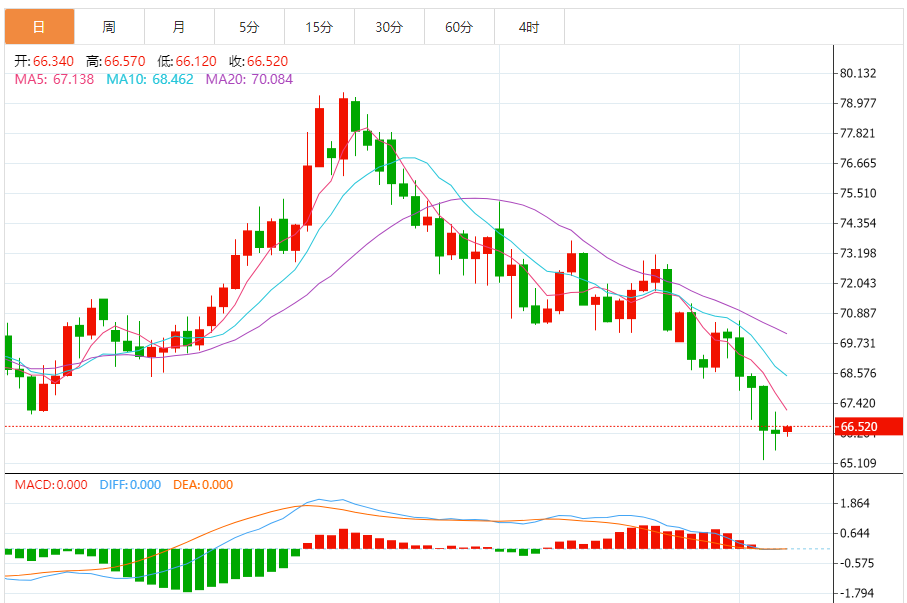On Friday (March 7), the price of US crude oil traded around $66.520 per barrel, up 0.24%. The current oil market is affected by multiple factors. OPEC+ production increase, changes in US tariff policy and sanctions on Iran make it difficult for oil prices to have a clear direction in the short term. Although OPEC+ has decided to increase production, it remains to be seen whether global supply will actually increase.

In addition, although the US tariff exemption for Canada and Mexico can stabilize market sentiment in the short term, there is still uncertainty in the policy. If the US eventually cancels tariffs on Canadian crude oil, it will help ease supply pressure.
Overnight, Brent crude futures rose 16 cents, or 0.2%, to $69.46 a barrel, while U.S. crude futures rose 5 cents, or 0.1%, to $66.36.
Brent crude fell to $68.33, the lowest since December 2021, mainly due to OPEC+'s decision to increase production quotas for the first time since 2022, and the unexpected increase in U.S. crude oil inventories, which put pressure on oil prices.
Market analysts pointed out that current oil prices are affected by multiple factors, including OPEC+'s supply policy, uncertainty in U.S. tariff policies, and changes in the geopolitical situation.
"OPEC+'s decision to increase production, the improved prospects for a peace agreement between Russia and Ukraine, and the repeated changes in U.S. tariff policies have caused continued volatility in the crude oil market." - Dennis Kissler, senior vice president of trading at BOK Financial
OPEC+ announced this week that it will increase crude oil production from April, the first time the organization has relaxed production restrictions since 2022.
The decision has raised market concerns about global supply growth, especially in the context of an unexpectedly large increase in U.S. crude oil inventories, further suppressing the room for oil prices to rise.
At the same time, Russia said it would not easily give up on the gains made in the Ukrainian conflict, but still sought a peace agreement to ensure its own security.
Market participants believe that if the situation between Russia and Ukraine tends to ease, it may reduce the risk of global supply chain disruptions, thereby affecting oil price trends.
US President Trump announced a one-month exemption of tariffs on goods from Canada and Mexico, and the market is taking a wait-and-see attitude.
In addition, according to people familiar with the matter, the United States may cancel the 10% tariff on Canadian crude oil and gasoline imports that comply with existing trade agreements. If this measure is implemented, it will ease tensions in North American energy trade and may provide some support for oil prices.
US Treasury Secretary Benson said that the United States plans to impose tougher economic sanctions on Iran to force its oil exports to drop sharply, while putting pressure on the Iranian currency. Market participants believe that if Iran's crude oil exports drop sharply, it may affect global crude oil supply and support oil prices to stabilize.